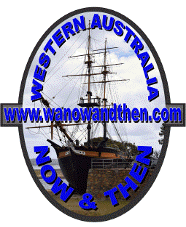|
NOTE: We are unsure of the current status of this site with regard to pets. We have emailed the Nungarin Shire for clarification and will update this page as soon as we can get confirmation.
Eaglestone Rock sits on the shore of Lake Brown and is located 20 kilometres north east of the town of Nungarin.
Access can be made via Nungarin North Road, Williams Road and Lake Brown South Road. Follow across Cornish Road and turn on to
the track where lake Brown South Road bends 90 degrees left.
Word is that many locals actually refer to this rock as Turtle Rock and looking at it, it isn't hard to see why.
There are several camping areas along the track. The first small campsite you get to isn't the main area, keep going around
the rock until you reach the large area on the far side. This is where the toilet is located.
The rock is home to wedge tailed eagles and they can often be seen perched high up or soaring above it.
Eaglestone is popular with rock climbers and it is a good place to find wildflowers in season.
Facilities at the rock are limited. The last time we visited it appeared as though the long drop toilet had been removed as
we could find no sign of it but the shire assures us that it is still there.
Vehicle based camping is allowed as is tent camping. For some reason Wikicamps has listed this as a non tent site and also states
that dogs are not permitted. We got in touch with the shire who say this is not correct and tent camping and dogs are welcome at the site.
There are some seats and tables available for picnickers but no bins so please remove all rubbish and dispose of it properly.
There is a 2 kilometre walk trail loop at the rock which is categorised as easy but it isn't sign posted so it is easy to go off the trail. There isn't much chance of becoming lost though as the rock os a constant landmark.
Lake Brown is a large salt lake that dries out completely most summers. There is a crust of brilliant while salt left behind when the water dries.
Please DO NOT drive on the lake surface. This is an extremely fragile environment and is easily destroyed.
Surveyor General J.S.Roe was the first European known to have visited the area. He wrote in his journal "Explorations East of York" in 1836:
October 24th: "At 1.45 reached the bare rocky summit 'j' from which a great extent of bare sand became visible in the low land to northward....The 'lakes' or reservoirs at our feet seem to form the bed or channel of the receptacle for all the water of this part of the country, but they are very shallow apparently, and composed of white sand. The surface has the appearance of being extensively covered with water, among which are dry banks coloured darker by woods or small plants, but whether the water is fresh or salt, or part of a river, or otherwise, must be decided tomorrow..."
Lake Brown was named after Peter Brown (Broun), who served as Colonial Secretary.
"After the Second World War, there was a shortage of plasterboard for the burgeoning building industry. Due to the presence of large quantities of gypsum (the raw material of plaster of Paris) in the Lake Brown area, it was decided to convert the old potash works at Chandler for the production of plaster.
In 1949 Australian Plaster Industries commenced operations. The demand for housing and plasterboard dropped with the credit squeeze of 1952, so A.P.I, decided to cease operations at Chandler, and the whole townsite was put up for sale by tender. Today virtually nothing remains.
Gypsum continues to be mined by Brady's at Lake Brown, but they cart the raw material to Perth by road for processing.
In 1975, Chandler Clay obtained a licence to treat the old tailings at the Chandler site for sale as 'Kitty Litter'. "
Source - http://inherit.stateheritage.wa.gov.au
Video available from March 9th 2024
Best time to visit:
|
Jan
|
Feb
|
Mar
|
Apr
|
May
|
Jun
|
Jul
|
Aug
|
Sep
|
Oct
|
Nov
|
Dec
|
|






